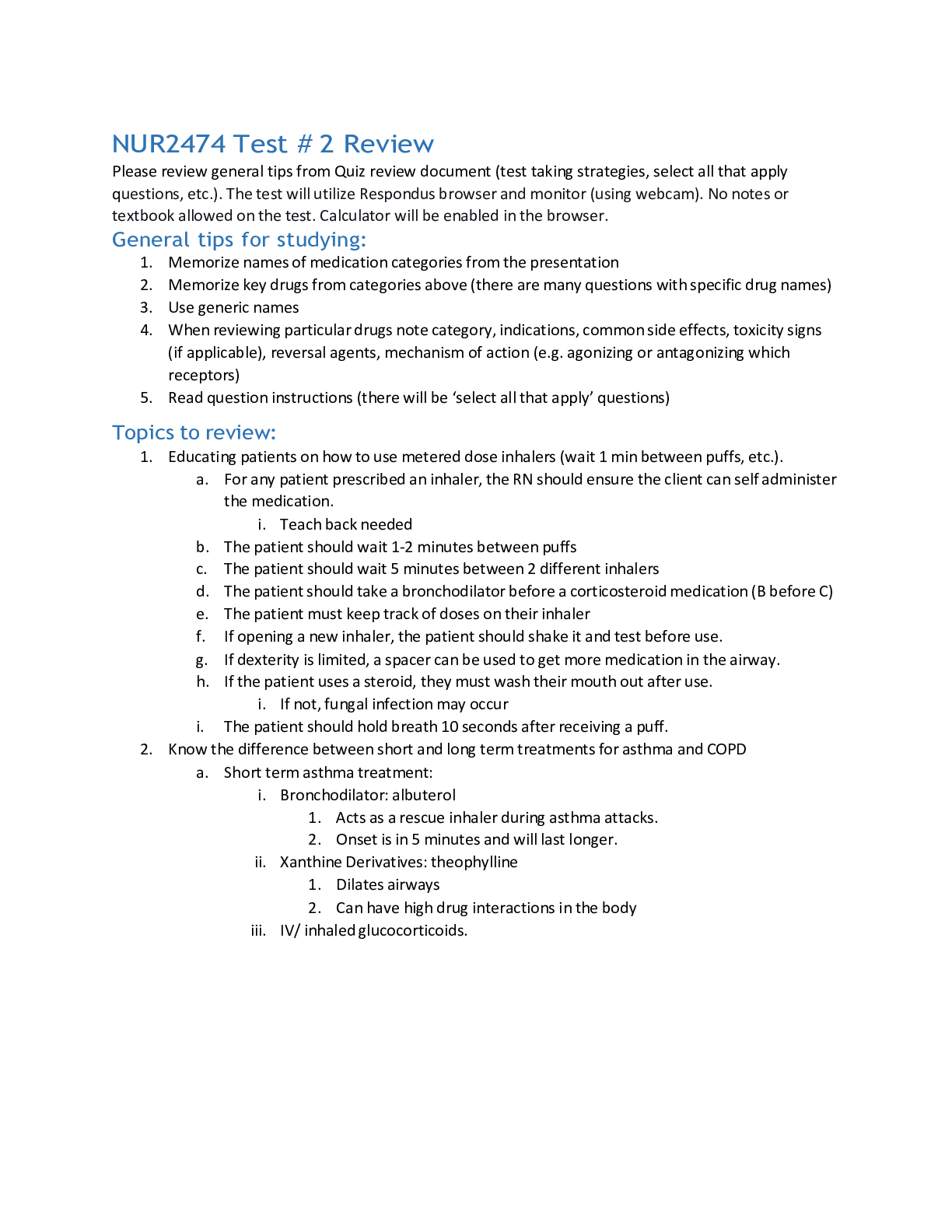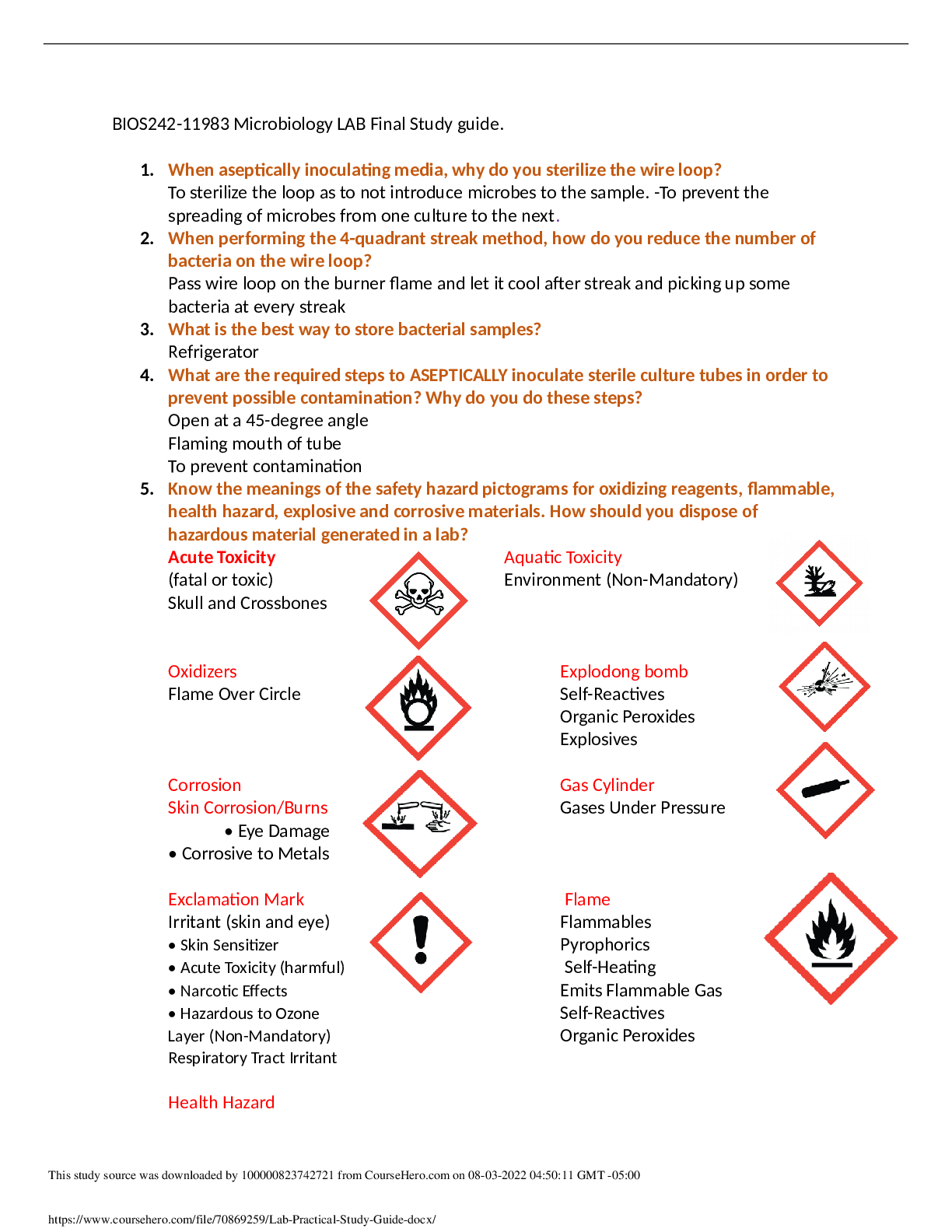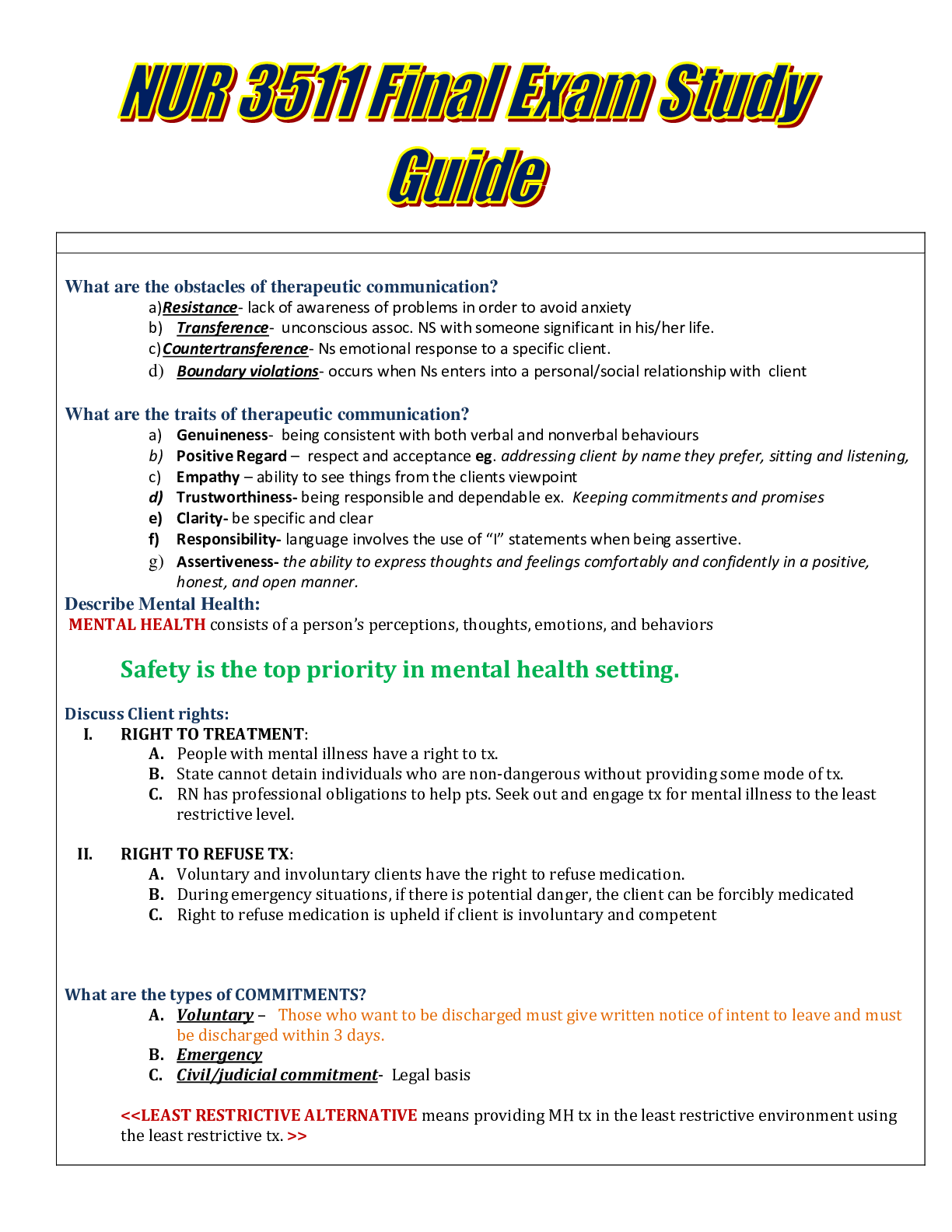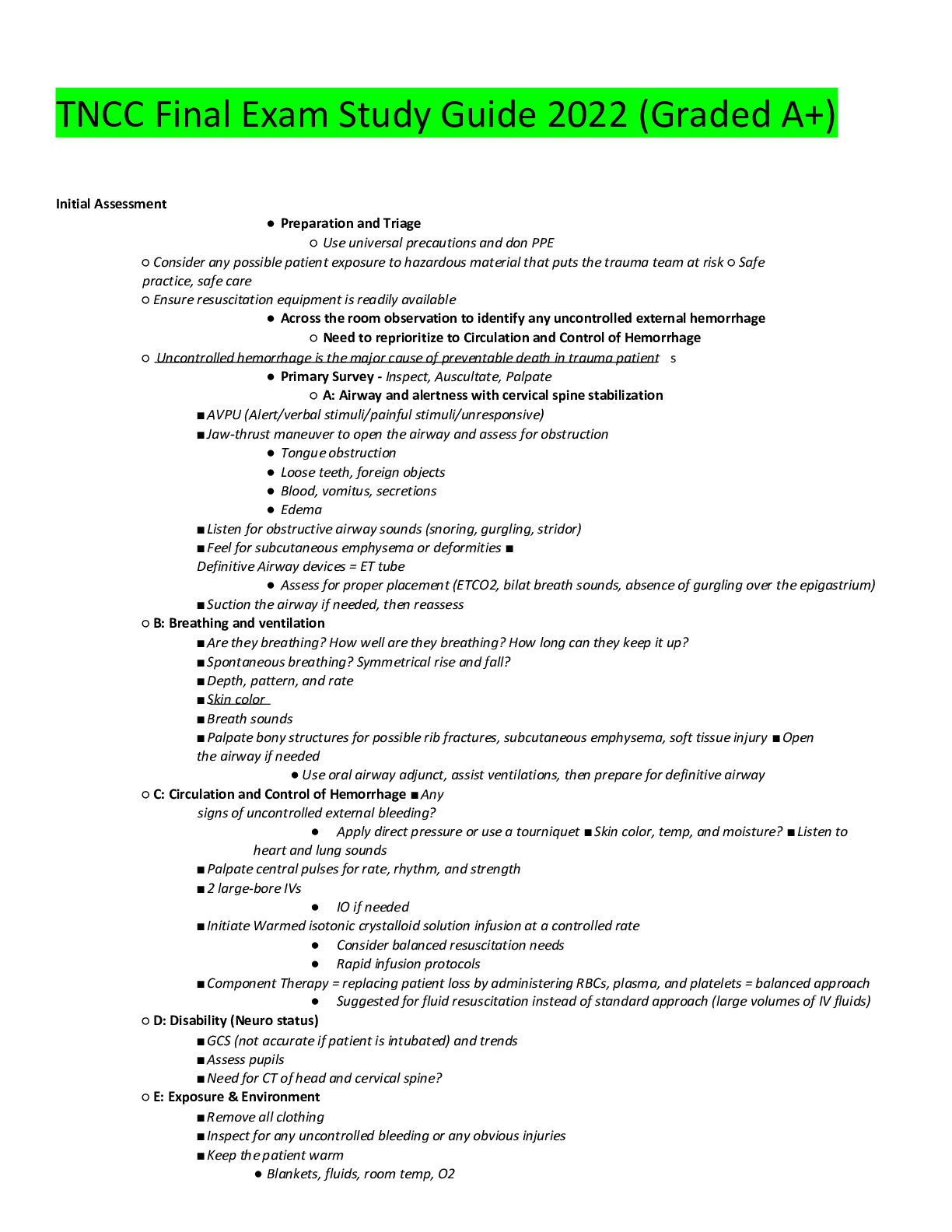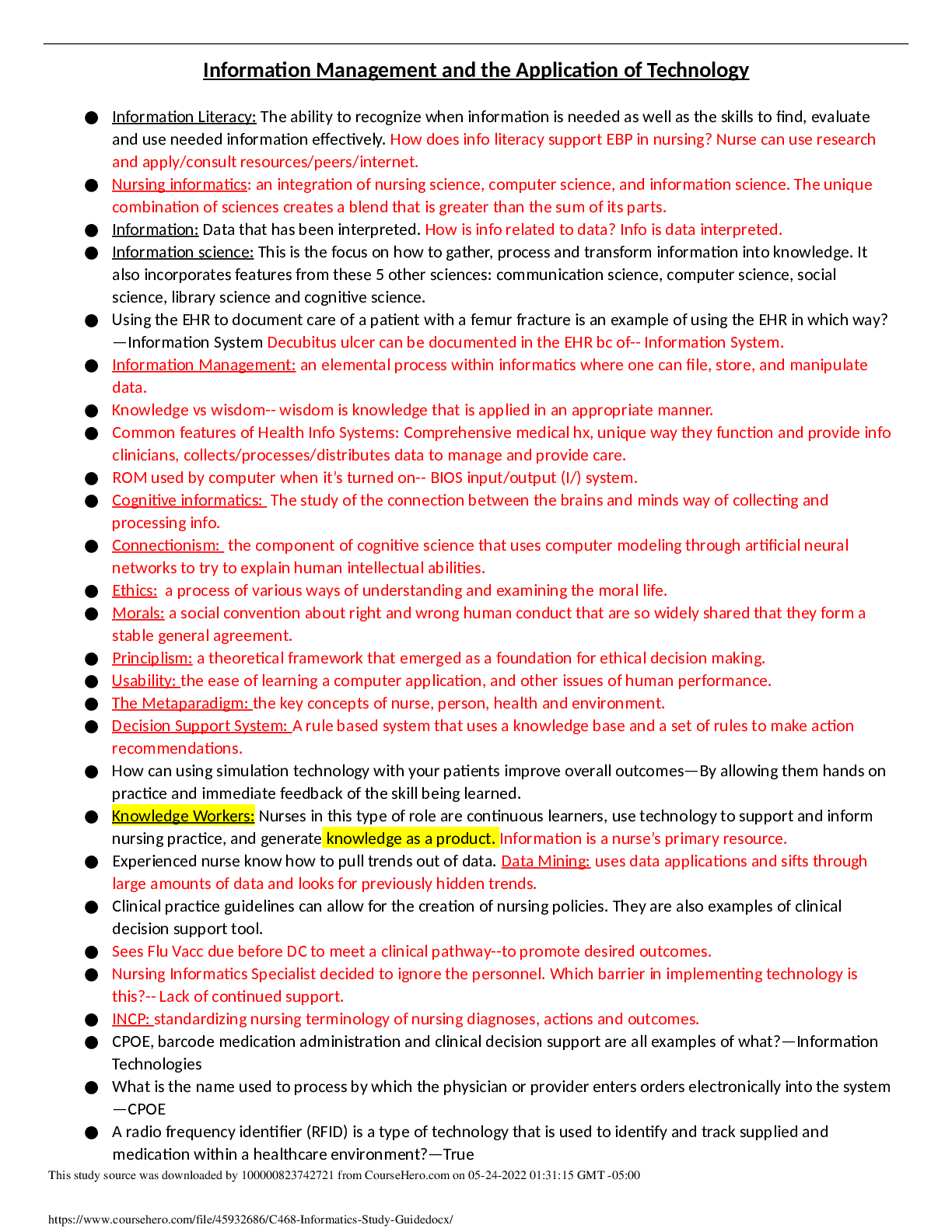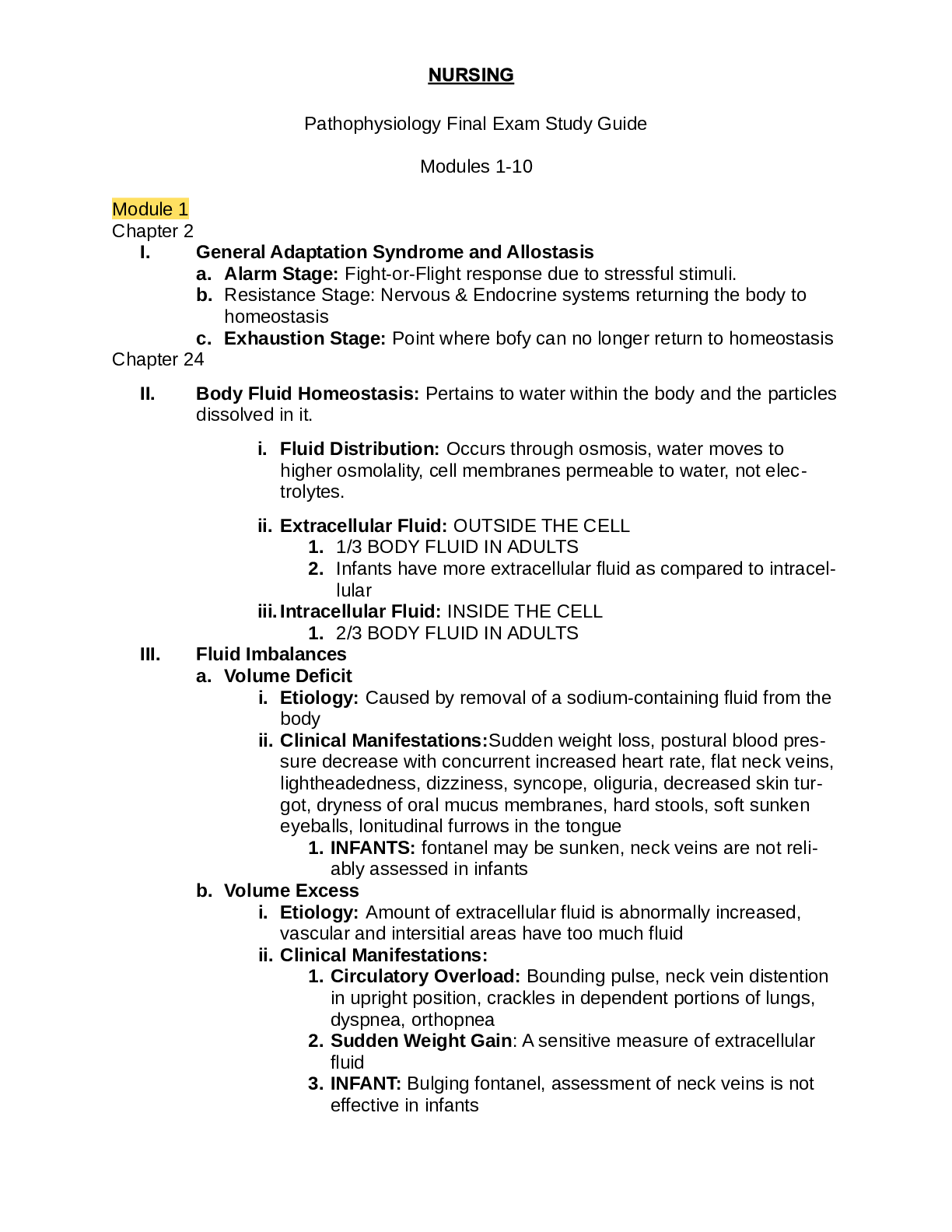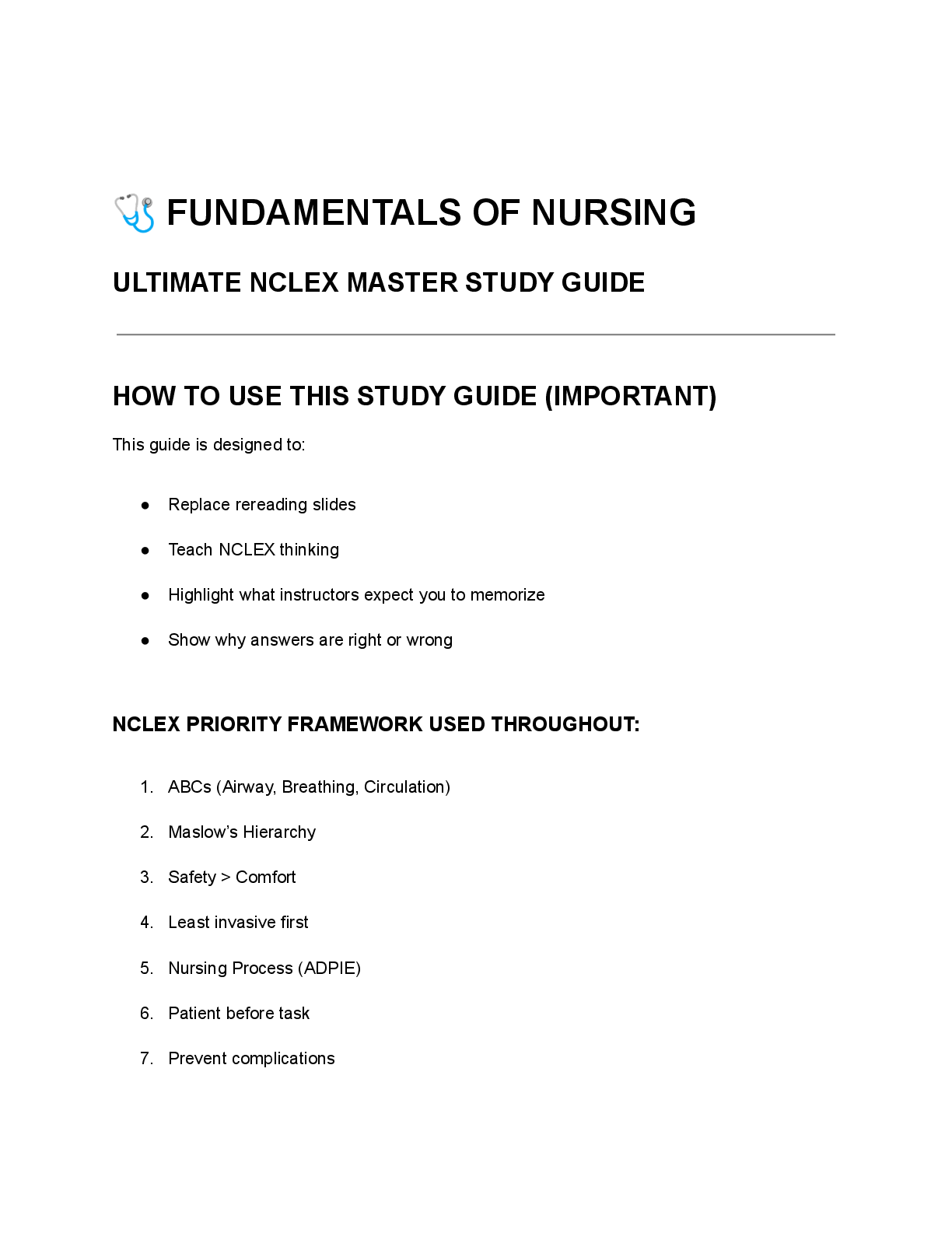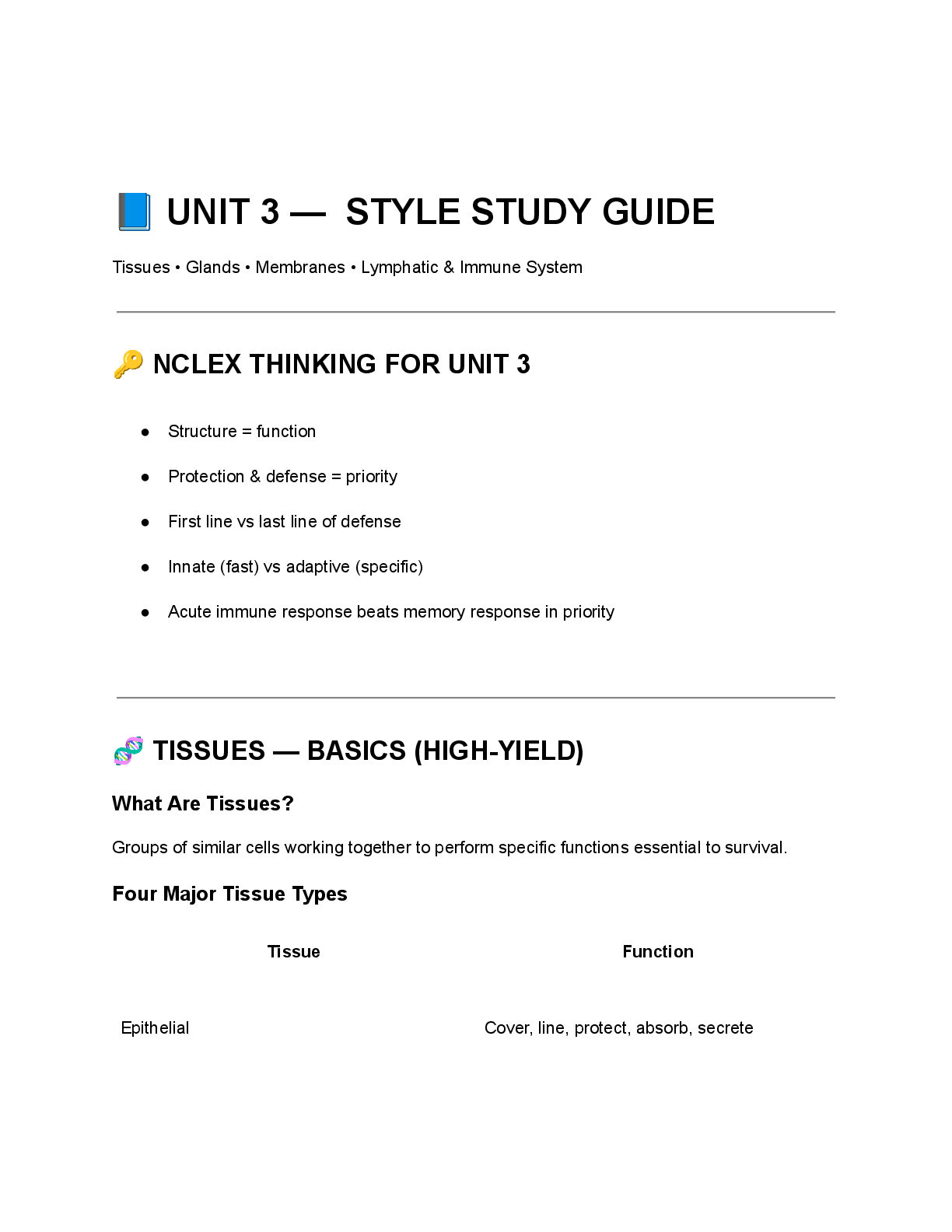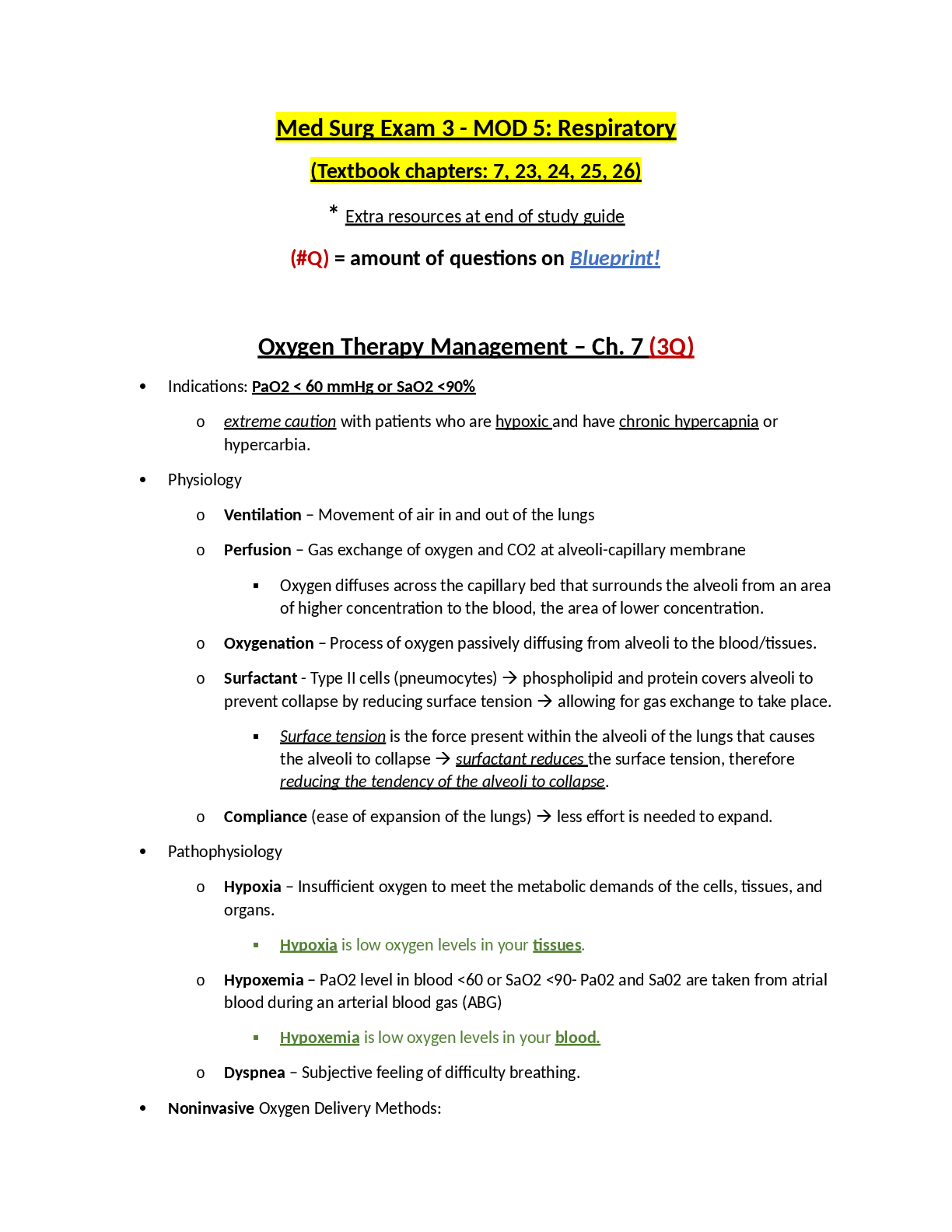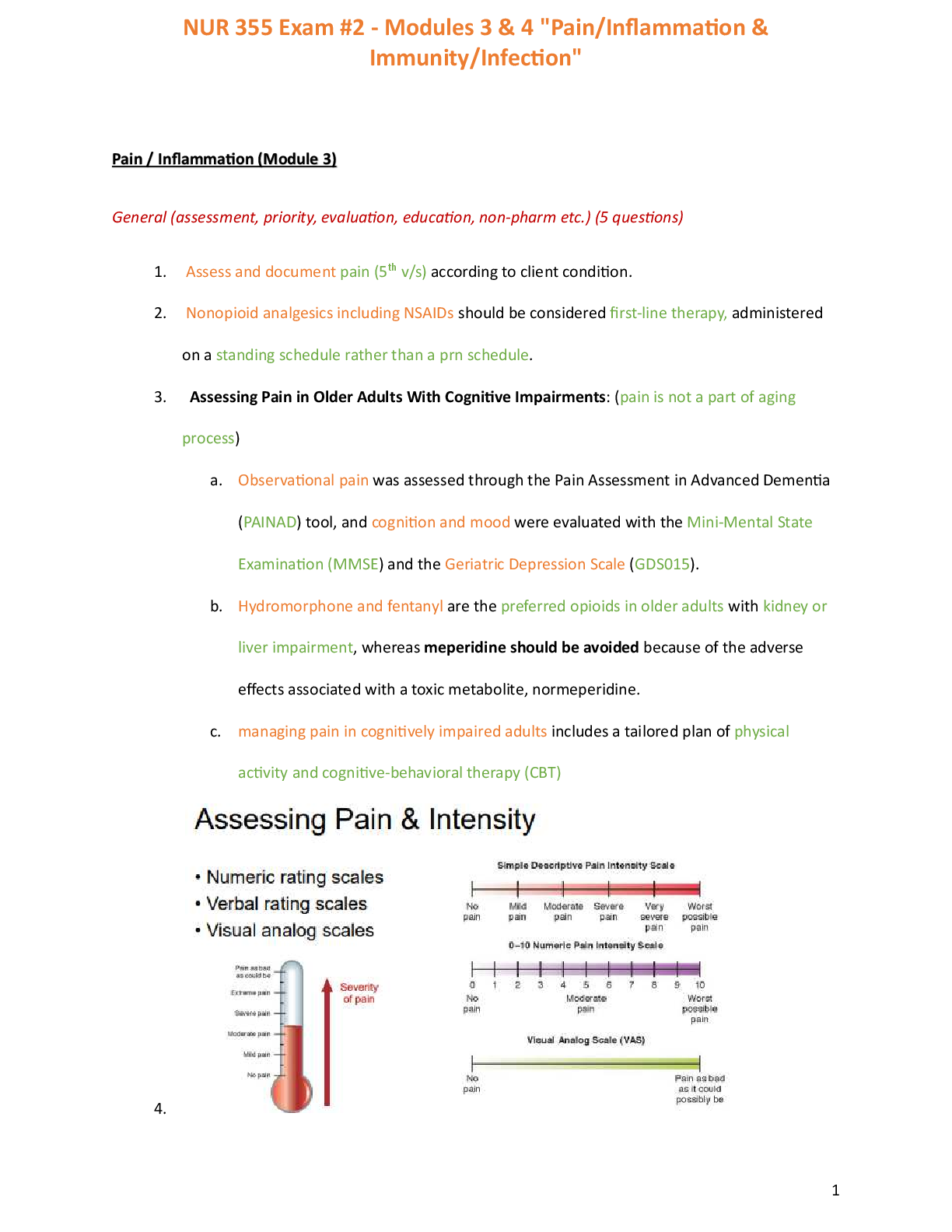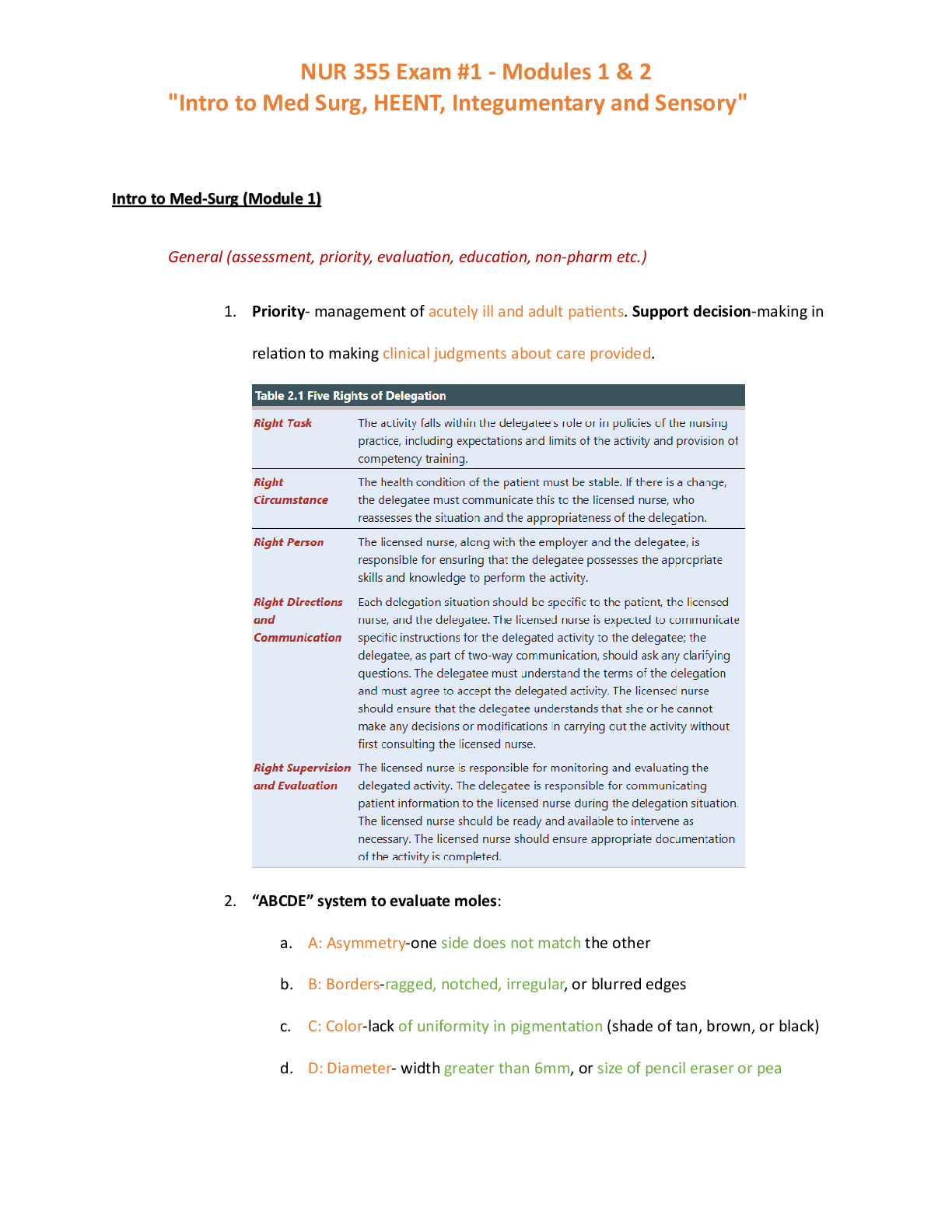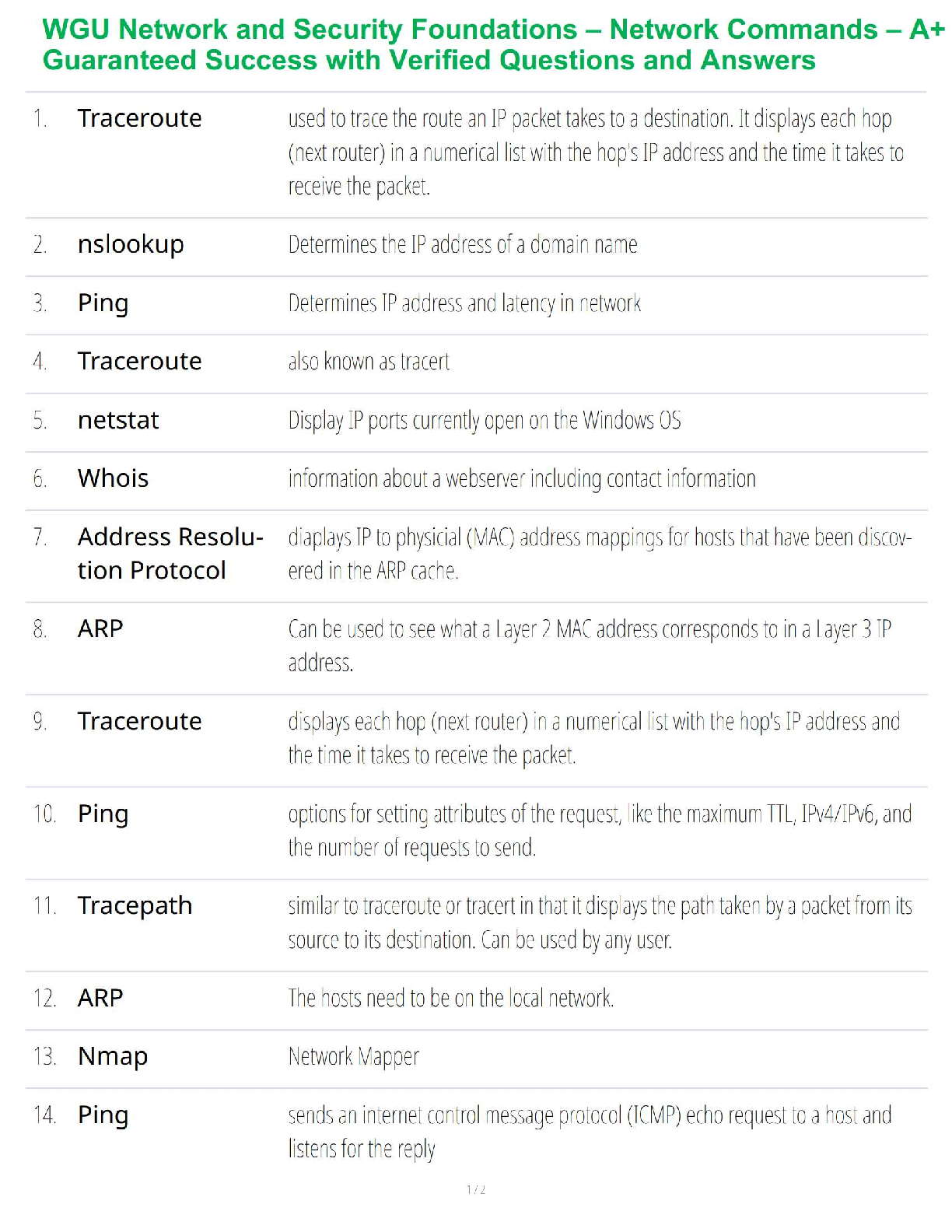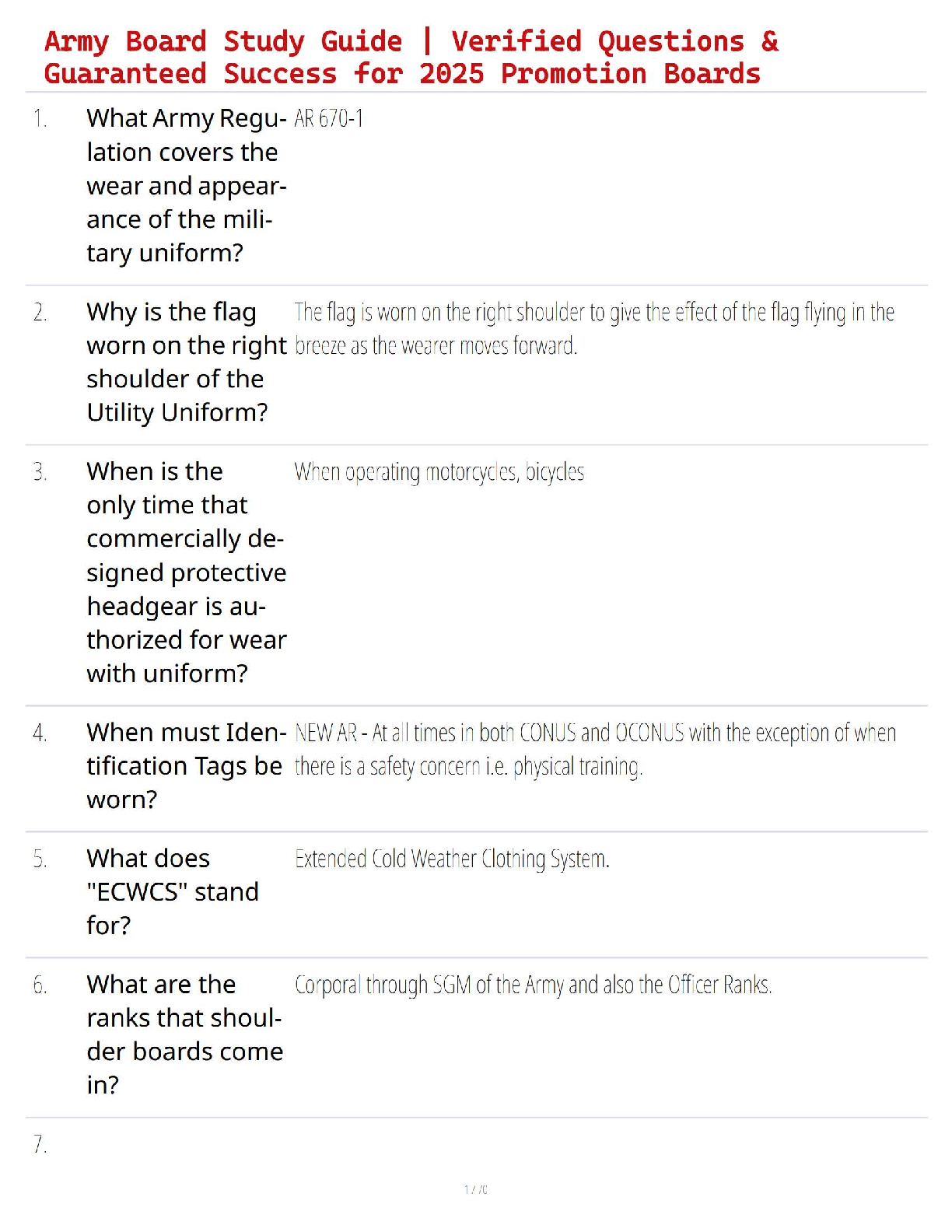Leadership ATI Study Guide
149 Terms [A+ GUIDE]
Steps in Providing Educational Programs
- 1) ID and Respond: to ID the need for knowledge or skill proficiency
2) Analyze: Deficiencies, develop learning objectives to
...
Leadership ATI Study Guide
149 Terms [A+ GUIDE]
Steps in Providing Educational Programs
- 1) ID and Respond: to ID the need for knowledge or skill proficiency
2) Analyze: Deficiencies, develop learning objectives to meet need
3) Research: Resources available to address learning objectives based on EBP
4) Plan: Program to address objectives using available resources
5) Implement: Program at time conducive to staff-> online learning modules
6) Evaluate: Use materials and observations to measure behavior change secondary to learning
The Five stages of Nursing Ability
- Established by Patricia Benner (1984)
Novice Nurse
Advanced Beginner Nurse
Competent Nurse
Proficient Nurse
Expert Nurse
Novice Nurses - Can be students or newly licensed nurses who have minimal experience. They approach
situations from theoretical perspective relying on context-free facts and established guidelines. Rules
govern practice
Advanced beginner - Most new nurses function at this level. Practice independently in the performance
of many tasks, make some clinical judgements. They being to rely on prior experience to make practice
descisions
Competent Nurse - Usually have been in practice for 2-3 years. Increasing level of skill and proficiency
and clinical judgement. They exhibit the ability to organize and plan care using abstract and analytical
thinking. They can anticipate long term outcomes of personal actions.Proficient Nurse - These are nurses who have a significant amount of experience upon which to base
their practice. Enhanced observational abilities allow nurses to be able to conceptualize situations more
holistically. Well-developed critical thinking and decision making skills allow nurses to recognize and
respond to unexpected changes.
Expert Nurse - great experience that allows them to view situations holistically and process information
efficiently. Make decisions using an advanced level of intuition and analytical ability. They do not need
to rely on rules to comprehend and take action in a situation.
Leadership Styles - Authoritative
Democratic
laizzez-faire
Leadership - Ability to inspire others to achieve a desired outcome
Management - Process of planning, organizing, directing, and coordinating the work with an
organization
Characteristics of Managers - Hold formal position of authority and power
Possess clinical experience
Network with members of the team
Coach subordinates
Makes decisions about organizing function, including resources, budget, hiring, and firing.
Five Major management Functions - Organizing
Staffing
Directing
Controlling (eval of staff performance and eval of unit goals to ensure identified goals are being met)
Authoritative - Makes decisions for the group
Motivates by coercionCommunications occurs down the chain of command
Work output by staff is usually high:
*Good for crisis situations**
Effective for employees with no education
Democratic - Includes the group when decisions are made
Motivates by supporting staff achievements
Communication occurs UP and DOWN chain of command
Work output is good quality: when cooperation and collaboration is necessary
Laissez-faire - makes very few decisions, does little planning
motivation is largely the responsibility of individual staff members
communication occurs UP and DOWN the chain of command and between group members
Work output is low unless and informal leader evolves from the group
Effective with professional employess
Characteristics of Leaders - Initiate
Inspiration
Energy
Positive Attitude
Communication skills
Respect
Problem-solving and critical thinking skills
Transformational Leaders - Empower followers to assume responsibility for a communal vision, and
personal development is a secondary outcome, future oriented
motivating and engage followersTransactional Leaders - Focus on immediate problems, maintaining only the status quo and using
rewards to motivate followers
Emotional Intelligence - Ability of an individual to perceive and manage the emotions of self and others
Nurse must be able to perceive and understand his own emotions and the emotions of the client and
family in order to provide patient centered care
Important for nursing leaders
Emotionally Intelligent Leader - Has insight into the emotions of members of the team
Understands the perspective of others
Encourages constructive criticism and is open to new ideas
Able to maintain focus while multitasking
Manages emotions and channels them in a positive direction, which in turn helps the team accomplish
its goals
Committed to the delivery of high quality care
Refrains from judgement in controversial/emotionally charged situations until gathering info
Maslow's Hierarchy - 1) Physiological-> need for airway and oxygenation, circulation, and potential for
disability
2) Safety and security: need for shelter/ safe environment
3) Love and Belonging
4) Self-esteem
5) Self-actualization
Prioritization Principles in Client Care - 1) Systemic before Local ("life before limb"
ex: interventions for a client in shock before a client with a broken leg
[Show More]
![Preview image of Leadership ATI Study Guide 149 Terms [A+ GUIDE] document](https://scholarfriends.com/storage/Leadership ATI Study Guide.png)


